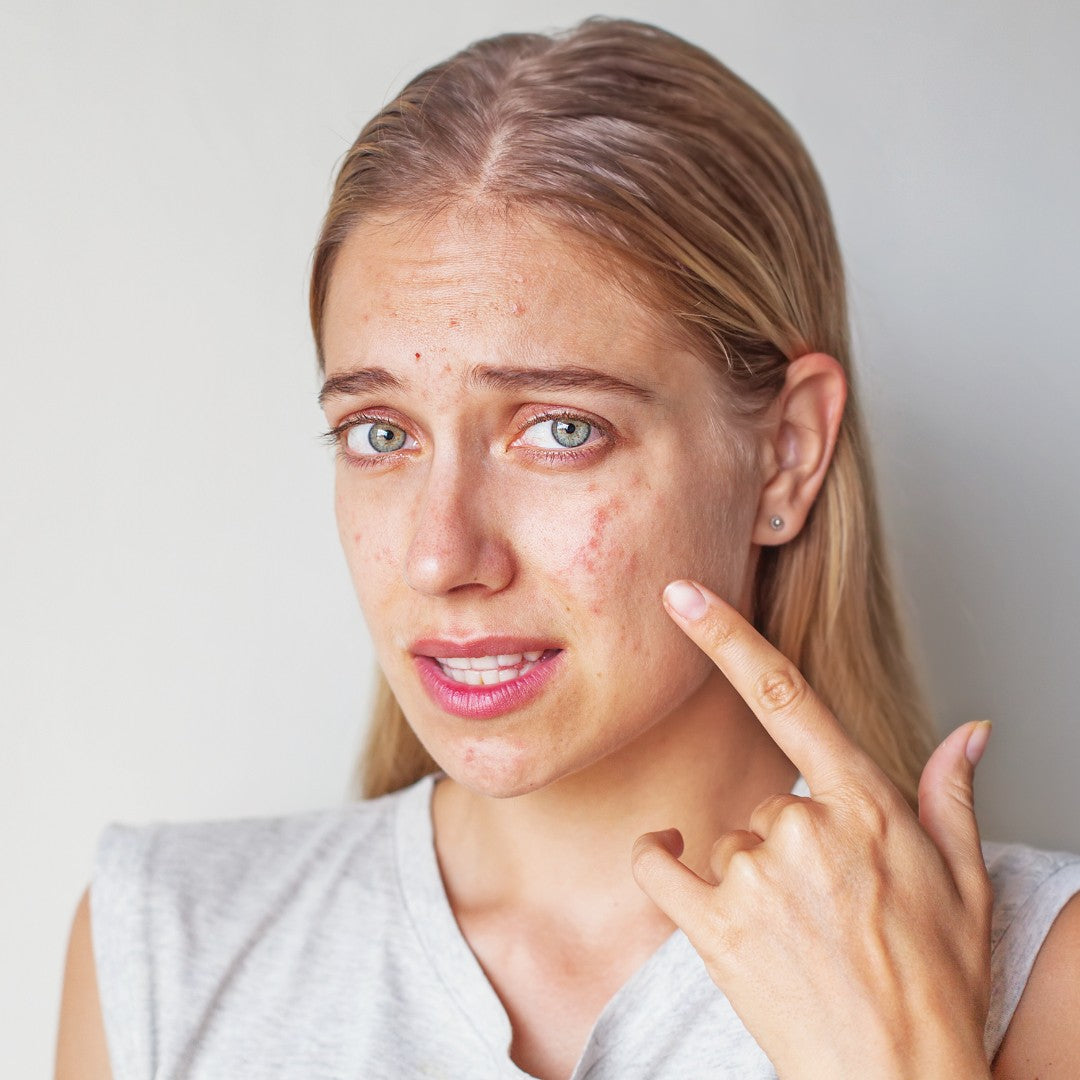
5 Soothing Skincare Products to Relieve Seasonal Allergies and Keep Your Skin Happy
Share
As the weather warms up and spring blooms around us, many of us also face the downside of the season: seasonal allergies. These allergies can cause havoc on our immune system and affect our skin, leading to symptoms such as dryness, redness, and inflammation. Itchy skin and allergy-prone skin can make the situation worse, leaving us feeling uncomfortable and self-conscious. Fortunately, there are effective skincare products that can help to soothe and alleviate these symptoms, leaving you with healthy, happy skin. In this post, we'll be sharing five of our top skin care products for relieving the effects of spring allergies on your skin, including inflamed skin and skin allergies. By incorporating these products into your daily routine, you can help to combat the effects of seasonal allergies and keep your skin looking and feeling its best.

This lightweight, fragrance-free moisturizer from PCA Skin contains a blend of ceramides, cholesterol, and fatty acids to strengthen the skin's barrier and improve hydration. It's suitable for all skin types, including sensitive skin, and can help to soothe redness and irritation.

This mild, non-foaming cleanser from SkinCeuticals is designed for sensitive or post-procedure skin. It contains allantoin and glycerin to soothe and hydrate the skin, and it's formulated without harsh surfactants, fragrances, or dyes.

This serum from EltaMD contains niacinamide, ginger, and bisabolol to calm and soothe irritated skin. It's also formulated with hyaluronic acid and squalane to hydrate and plump the skin.

This vitamin C serum from SkinCeuticals contains 15% pure vitamin C, along with vitamin E and ferulic acid, to provide antioxidant protection and brighten the skin. It's suitable for all skin types, including sensitive skin.

This lightweight, oil-free sunscreen from EltaMD is designed for acne-prone or sensitive skin. It contains niacinamide and hyaluronic acid to soothe and hydrate the skin, along with zinc oxide to provide broad-spectrum protection against UVA and UVB rays.
FAQs
How Can I Treat an Allergic Reaction on My Skin?
If you experience an allergic reaction on your skin, such as hives or a rash, try taking an antihistamine or using a topical cream containing hydrocortisone. It's also important to identify and avoid the allergen that triggered the reaction.
How Can I Reduce Puffiness and Redness Around My Eyes Caused by Allergies?
To reduce puffiness and redness around your eyes caused by allergies, try using a cool compress or eye drops containing antihistamines. You can also try using eye creams containing caffeine or vitamin C to help brighten the area.
How Often Should I Use a Moisturizer for Dry, Irritated Skin Caused by Allergies?
You should use a moisturizer for dry, irritated skin caused by allergies as often as needed throughout the day. Apply it after washing your face or as needed to soothe and hydrate the skin.
Can Allergy Medications Cause Dry Skin?
Yes, some allergy medications like antihistamines can cause dry skin. If you experience dryness, try using a fragrance-free and hypoallergenic moisturizer to hydrate the skin.
What Is the Best Way to Exfoliate Sensitive Skin During Allergy Season?
If you have sensitive skin during allergy season, it's best to avoid harsh physical exfoliants and instead use a gentle chemical exfoliant containing ingredients like alpha-hydroxy acids or enzymes.
How Can I Protect My Lips from Seasonal Allergies?
To protect your lips from seasonal allergies, try using a lip balm with SPF protection and ingredients like beeswax or shea butter to hydrate and protect the delicate skin.
Can Stress Worsen Allergy Symptoms on The Skin?
Yes, stress can worsen allergy symptoms on the skin, such as redness and inflammation. To manage stress, try relaxation techniques like meditation, yoga, or deep breathing.
What Is the Best Type of Sunscreen for Sensitive Skin During Allergy Season?
The best type of sunscreen for sensitive skin during allergy season is a physical sunscreen containing zinc oxide or titanium dioxide. These ingredients are less likely to cause irritation or trigger allergies.
How Can I Reduce Skin Irritation Caused by Wearing a Face Mask During Allergy Season?
To reduce skin irritation caused by wearing a face mask during allergy season, try using a fragrance-free and hypoallergenic moisturizer before putting on the mask. You can also try using a silicone mask liner to reduce friction and irritation.
Can Seasonal Allergies Cause Rosacea Flare-Ups?
Yes, seasonal allergies can trigger rosacea flare-ups and other types of skin inflammation. To manage rosacea during allergy season, try using gentle, fragrance-free skin care products and avoiding known triggers like certain foods or environmental irritants.
Final Thoughts
Taking care of your skin during allergy season is essential for those with itchy, allergy-prone, or inflamed skin. Spring allergies affect millions each year, and the immune system's response can affect your skin, causing dryness, redness, and irritation. Fortunately, using gentle, fragrance-free, and hypoallergenic skincare products can help soothe and alleviate these symptoms. Whether you prefer popular brands like PCA Skin, SkinCeuticals, and EltaMD, or prefer tried-and-true favorites like ceramides and colloidal oatmeal, using products that won't exacerbate your skin's sensitivity is key. Consistency is also important, as is managing your seasonal allergies with allergy medication, avoiding allergens, and drinking plenty of water. By taking these steps, you can keep your skin happy and healthy throughout the year, even when spring allergies affect your skin.
